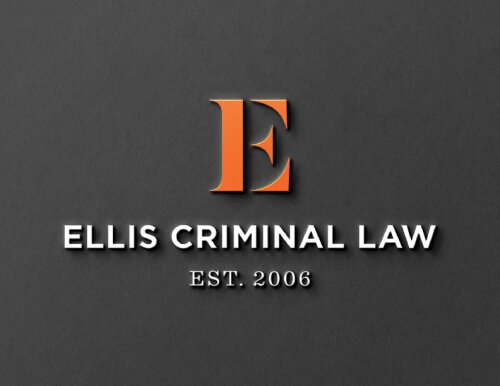Best General Litigation Lawyers in Canada
Share your needs with us, get contacted by law firms.
Free. Takes 2 min.
Or refine your search by selecting a city:
List of the best lawyers in Canada
Canada General Litigation Legal Articles
Browse our 1 legal article about General Litigation in Canada written by expert lawyers.
- How to Claim Personal Injury Damages in Ontario Canada
- Victims have two years from the date of the accident to initiate a lawsuit against the at-fault driver in Ontario. Ontario uses a hybrid system where you receive immediate "no-fault" benefits regardless of who caused the crash, while also retaining the right to sue for additional damages. To successfully sue... Read more →
About Litigation Law in Canada
Litigation in Canada refers to the process of taking legal action by resolving disputes through the court system. It encompasses a variety of legal proceedings, including civil, commercial, and criminal cases. Canadian litigation is governed by both federal and provincial laws, and its procedures can vary between jurisdictions. The litigation process typically involves several stages, including pleadings, discovery, pre-trial motions, trials, and possibly appeals.
Why You May Need a Lawyer
There are numerous scenarios in which individuals or businesses might need legal assistance with litigation:
- Contract Disputes: Breaches of contract or disagreements about contractual terms can lead to litigation.
- Personal Injury Claims: In cases where someone is injured due to another's negligence, litigation may be necessary to seek compensation.
- Family Disputes: Divorce, child custody, and support issues may require court intervention.
- Business Litigation: Disputes related to business practices, such as intellectual property Rights disputes or shareholder disagreements.
- Criminal Defense: Those accused of criminal activity will likely need a legal representative to navigate the court process.
Local Laws Overview
Litigation in Canada is influenced by a combination of federal and provincial legislation as well as common law precedents:
- Civil Procedure: Each province may have its own civil procedure rules which dictate how litigation must be conducted, ranging from Alberta's Rules Of Court to Ontario's Rules of Civil Procedure.
- Limitation Periods: A limitation period is the time frame within which you must initiate a lawsuit. These can vary by province and the nature of the claim.
- Court Hierarchy: The structure typically begins with Provincial Courts, followed by Superior Courts, Courts of Appeal, and in certain cases, the Supreme Court of Canada.
- Alternative Dispute Resolution (ADR): Methods such as mediation and arbitration are often encouraged to resolve disputes without court intervention.
Frequently Asked Questions
What is the first step in starting a lawsuit?
The first step is usually to prepare and file a statement of claim or a notice of civil claim, which outlines the basis for your lawsuit.
How long does litigation normally take?
The length of litigation can vary widely depending on the complexity of the case, ranging from several months to several years.
Can I represent myself in court?
While you have the right to represent yourself, it is not recommended due to the complexity of legal proceedings.
What is discovery?
Discovery is a pre-trial phase where both parties exchange documents and information relevant to the case to prepare for the trial.
What are court costs and who pays them?
Court costs are expenses associated with litigation. Typically, the losing party may be ordered to pay a portion of the winning party's legal fees.
What happens if I lose my case?
If you lose, you may have the right to appeal the decision to a higher court, subject to specific rules and requirements.
What is a settlement?
A settlement is an agreement reached between parties to a lawsuit to resolve the dispute without proceeding to a court trial.
Is there a deadline to file a lawsuit?
Yes, the limitation period sets deadlines by which different types of legal actions must be initiated.
What is mediation?
Mediation is a form of ADR where a neutral third party helps the disputing parties reach a mutually agreeable solution.
Can litigation be avoided?
In many cases, disputes can be resolved through negotiation or ADR, avoiding the need for litigation.
Additional Resources
If you require further assistance or information, consider the following resources:
- Justice Canada: Offers resources and information on federal laws and regulations.
- Provincial and Territorial Law Societies: Each province has a law society that regulates the legal profession and can provide lawyer referrals.
- Courts of Canada: Access various court websites for specific procedural rules and contact information.
- Community Legal Aid Clinics: Provide free or low-cost legal advice for qualifying individuals.
- Alternative Dispute Resolution Institute of Canada: Provides resources and promotes methods for resolving disputes outside of court.
Next Steps
If you need legal assistance in the field of litigation, consider the following steps:
- Determine the nature of your legal issue and gather relevant documentation.
- Contact a lawyer or a legal clinic to discuss your case and get professional advice.
- Consider seeking multiple consultations to gain different perspectives on your legal situation.
- Evaluate alternative dispute resolutions to potentially avoid lengthy litigation processes.
- Prepare for your legal proceedings by learning about the movement and expectations in your specific legal context.
Lawzana helps you find the best lawyers and law firms in Canada through a curated and pre-screened list of qualified legal professionals. Our platform offers rankings and detailed profiles of attorneys and law firms, allowing you to compare based on practice areas, including General Litigation, experience, and client feedback.
Each profile includes a description of the firm's areas of practice, client reviews, team members and partners, year of establishment, spoken languages, office locations, contact information, social media presence, and any published articles or resources. Most firms on our platform speak English and are experienced in both local and international legal matters.
Get a quote from top-rated law firms in Canada — quickly, securely, and without unnecessary hassle.
Disclaimer:
The information provided on this page is for general informational purposes only and does not constitute legal advice. While we strive to ensure the accuracy and relevance of the content, legal information may change over time, and interpretations of the law can vary. You should always consult with a qualified legal professional for advice specific to your situation.
We disclaim all liability for actions taken or not taken based on the content of this page. If you believe any information is incorrect or outdated, please contact us, and we will review and update it where appropriate.
Browse general litigation law firms by city in Canada
Refine your search by selecting a city.
















